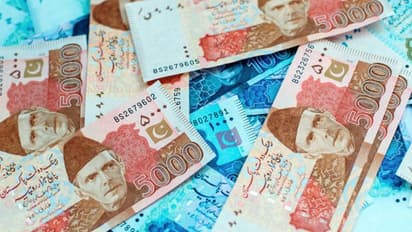Demonetisation in Pakistan? Cash-strapped nation to roll out new currency notes of all denominations

Synopsis
Governor Ahmed emphasized that the transition to the new currency would be gradual to prevent disruptions and public panic, learning from the experiences of other countries that faced challenges during similar transitions.
In a bid to counter the threat of counterfeit currencies and modernize the monetary system, Pakistan's central bank, the State Bank of Pakistan, has announced the introduction of new currency notes equipped with enhanced security features.
Governor Jameel Ahmed shared that the updated notes would incorporate advanced international security measures, such as unique security numbers and designs, aimed at safeguarding the integrity of Pakistan's currency.
Post-consecration, Ram temple construction set to resume on February 15; check details
Governor Ahmed emphasized that the transition to the new currency would be gradual to prevent disruptions and public panic, learning from the experiences of other countries that faced challenges during similar transitions.
While the move is seen as a positive step to bolster the reliability of the monetary system, some financial experts speculate whether the introduction of new currency notes might include demonetization of higher denominations like the Rs 5,000 note.
The objective could be to curb the circulation of counterfeit currency and address concerns related to the black money market, which has a significant impact on Pakistan's economy.
Sohail Farooq from Capital Investment acknowledged the importance of ensuring the integrity of Pakistan's monetary system but raised questions about the potential inclusion of demonetization in the plan.
ED summons fallout: BJP MP Nishikant Dubey hints at Hemant Soren's wife as next Jharkhand CM
He highlighted the recent surge in the use of counterfeit currency notes, expressing hope that the circulation of new notes would instill confidence in businesses and contribute to a more reliable monetary environment.
Another banking expert emphasized the need for the central bank to implement the new currency smoothly, avoiding inconvenience to the public and businesses during the transition period.
Check the Breaking News Today and Latest News from across India and around the world. Stay updated with the latest World News and global developments from politics to economy and current affairs. Get in-depth coverage of China News, Europe News, Pakistan News, and South Asia News, along with top headlines from the UK and US. Follow expert analysis, international trends, and breaking updates from around the globe. Download the Asianet News Official App from the Android Play Store and iPhone App Store for accurate and timely news updates anytime, anywhere.